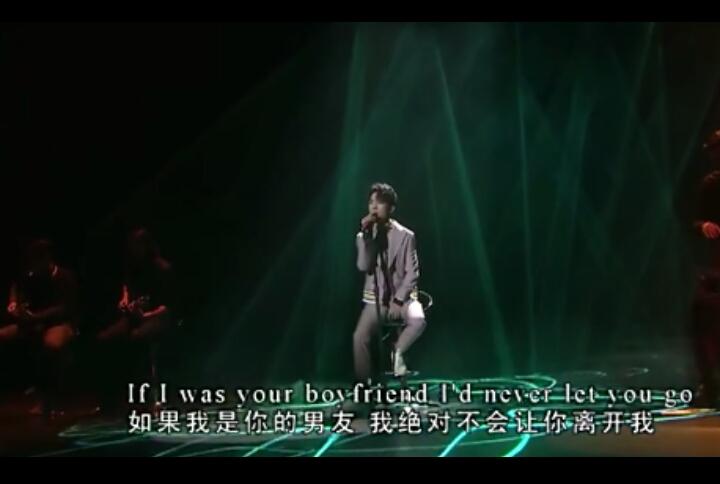
科技改變生活 · 科技引領(lǐng)未來(lái)

科技改變生活 · 科技引領(lǐng)未來(lái)
EXO我唯十二
雖然你們現(xiàn)在發(fā)出非常多的歌曲可是我最喜歡的還是你們十二個(gè)人一起唱的咆哮

Knock knock
Who is it
This is the landlord
I'm here you can get in
You what
Did he in right
Come here tomorrow and I need one more night
Time's hauling
This night is slow
Flan roll
Flan roll
Flan roll
Flan roll nowhere to go
It's time to move move move
We got to move
Get on your feet
Let's move
Soon up we got to move
Your boyfriend was out allnight
Rock roll till the morning light
Lippies gone with color
Beer on the bed
Cheeps in the house is scared to death
You've taken all about all you can stand
Now it'll be the right time right time right time
To leave that man
You got to move move move
It's time to move move move
Go get yourself smarten and just move
Soon up you got to move move move move
It's a crazy world
It's a short life short life short life
So jump on me when the time is right
You got to move
Let's go and it's close to taxi
All you ladies you looking fine
No more whiskey no more beer
You or can go home or you stay here
Here's the truth
It might sound funny
Every lady get out of your muddy
You got to move
It's time to move move move
Soon up you got to move
That's right you got to move
You got to move
You got to move
Get on your feet let's move
Soon up you got to move
You got to move
Soon up you got to move
You got to move
You got to move
You got to move
You got to move
You got to move
跟所有語(yǔ)言一樣,英語(yǔ)口語(yǔ)中有大量的簡(jiǎn)寫(xiě)形式,這些簡(jiǎn)寫(xiě)形式往往被頻繁的應(yīng)用在母語(yǔ)使用者的口頭表達(dá)以及音樂(lè)歌詞中,也經(jīng)常出現(xiàn)在美劇和電影臺(tái)詞里,但是卻很少在英語(yǔ)教材上被提及,因?yàn)樗鼈兌际欠钦降谋磉_(dá)方式。
今天我們就來(lái)給大家八一八英文口語(yǔ)中最常用的10個(gè)簡(jiǎn)寫(xiě)形式以及它們的原型。學(xué)會(huì)這些簡(jiǎn)寫(xiě),會(huì)讓你的口語(yǔ)表達(dá)顯得更加地道自然,如果你喜歡唱英文歌,特別是嘻哈樂(lè),饒舌,那么掌握這些簡(jiǎn)寫(xiě)的說(shuō)法幾乎是必須的,因?yàn)樗鼈兛梢詭椭爿p松地找到韻腳。需要注意的是,請(qǐng)不要在正式書(shū)信或者場(chǎng)合使用這些簡(jiǎn)寫(xiě)形式。
1. Gonna
最常見(jiàn)的一個(gè),它是"Going to"的簡(jiǎn)寫(xiě)形式。90年代著名偶像男孩組合Nsync有首熱門(mén)單曲叫作"It's Gonna Be Me“。
2. Gotta
"Got to"的簡(jiǎn)寫(xiě)形式,常常以一般完成時(shí)形態(tài)出現(xiàn)表達(dá)“必須“的意思,等同于”have to“或者”Must“。例句: I gotta go to the bathroom right now!
3. Wanna
常常在英文歌里面出現(xiàn)的一個(gè)表達(dá)方式,"Want to"的簡(jiǎn)寫(xiě),不用過(guò)多解釋。值得注意的是,這個(gè)表達(dá)方式后面應(yīng)該接的是動(dòng)詞,而不是名詞。一些同學(xué)習(xí)慣性的在I wanna后面直接加名詞的用法是不對(duì)的,例如你不能說(shuō)"I wanna a beer", 而應(yīng)該說(shuō)"I wanna drink a beer."。
4. Lemme
"Let me"的簡(jiǎn)寫(xiě)形式,也是常常在英文歌里面出現(xiàn)的一個(gè)表達(dá)方式。例句:Lemme give you a ride.
5. Gimme
"Give me"的簡(jiǎn)寫(xiě)形式,常常在英文歌里面出現(xiàn)的一個(gè)表達(dá)方式。例句:Please gimme a dollar.
6. Outta
"Out of"的簡(jiǎn)寫(xiě)形式,常用的說(shuō)法是”I'm outta here", 意思是我要撤了。也許大家經(jīng)常在美劇或者電影中看到或者聽(tīng)到這句粗口: Get the f**k outta here!
7. Kinda
"Kind of"的簡(jiǎn)寫(xiě),英語(yǔ)母語(yǔ)使用者最頻繁使用的一個(gè)表達(dá)方式之一,表達(dá)“一點(diǎn)點(diǎn)”。例句:I think this dish is kinda too salty, isn't it?
8. I'mma
這個(gè)更加高能,是"I'm going to"三個(gè)詞的簡(jiǎn)寫(xiě),常聽(tīng)Black Eyed Peas的人應(yīng)該對(duì)它不陌生, 他們有一首熱門(mén)單曲叫做“I'mma Be”。
9. Hafta
Hafta:have to的簡(jiǎn)寫(xiě),跟上面的gotta類(lèi)似,但是使用頻率沒(méi)有g(shù)otta高。
10. Dunno
英美青少年最?lèi)?ài)使用的一個(gè)表達(dá)方式,表示don't know. 例句:I really dunno what I'm doing here.
下面的這張信息圖總結(jié)了這10個(gè)簡(jiǎn)寫(xiě)形式和它們的原形,并提供了例句,值得保存:
本文系智用英語(yǔ)原創(chuàng),部分圖片來(lái)源于網(wǎng)絡(luò),轉(zhuǎn)載請(qǐng)標(biāo)明出處。
智用英語(yǔ),學(xué)以致用
Learn to use English and use English to learn
是 secret組合的poison
,韓男組合boyfriend的boyfriend中有這句歌詞,很可愛(ài)的組合,
Travelin'Soldier遠(yuǎn)行的戰(zhàn)士
Twodayspasteighteen
18歲剛過(guò)兩天
Hewaswaitingforthebus
他穿著軍裝在等汽車(chē)
inhisarmygreenSatdowninaboothinacafethere
坐在露天的咖啡座
Gavehisordertoagirlwithabowinherhair
女招待戴著蝴蝶結(jié),男孩點(diǎn)了東西
He'salittleshysoshegavehimasmile
她沖著害羞的男孩微笑
Andhesaidwouldyoumindsittin'downforawhile
他說(shuō)你是否可以坐下陪我聊天
Andtalkingtome,I'mfeelingalittlelow
因?yàn)槲矣行┣榫w低落
ShesaidI'moffinanhour
她說(shuō)我還有一個(gè)小時(shí)就下班了
andIknowwherewecango.
我知道我們可以去哪里坐坐
Sotheywentdownandtheysatonthepier
他們一起坐在碼頭
HesaidIbetyougotaboyfriendbutIdon'tcare
他說(shuō)我猜你有男友但是我不會(huì)在乎
Igotnoonetosendaletterto
他說(shuō)我甚至無(wú)人可以寫(xiě)信
WouldyoumindifIsentonebackheretoyou
你是否介意我與你書(shū)信交往?
Icried
我哭了
Nevergonnaholdthehandofanotherguy
我再不會(huì)拉另個(gè)男孩的手
Tooyoungforhimtheytoldher
他們說(shuō)他上戰(zhàn)場(chǎng)還太年輕
Waitin'fortheloveofatravelin'soldier
而她還在等待那個(gè)遠(yuǎn)行戰(zhàn)士的愛(ài)
Ourlovewillneverend
這愛(ài)情將永不消逝
Waitin'forthesoldiertocomebackagain
等待遠(yuǎn)行戰(zhàn)士的歸來(lái).
Nevermoretobealonewhenthelettersaid
Asoldier'scominghome
當(dāng)信上說(shuō)戰(zhàn)士即將歸來(lái)
將不會(huì)再與寂寞相伴
Sotheletterscamefromanarmycamp
軍中不斷發(fā)來(lái)信件
InCaliforniathenVietnam
從加州到越南
Andhetoldherofhisheart
他向她傾訴衷腸
Itmightbeloveandallofthethingshewas
soscaredofHesaidwhenit'sgettingkindaroughoverhere
從愛(ài)意到心中恐慌
他說(shuō)每當(dāng)遭遇困苦危險(xiǎn)
Ithinkofthatdaysittin'downatthepier
我都會(huì)想起那日碼頭共坐
AndIclosemyeyesandseeyourprettysmile
我閉上雙眼回憶你的甜美微笑
Don'tworrybutIwon'tbeabletowriteforawhile
不要擔(dān)心,我可能有一陣子不能寫(xiě)信了
OneFridaynightatafootballgame
在一個(gè)星期五的橄欖球賽上
TheLord'sPrayersaidandtheAnthemsang
突然響起了圣歌和祈禱,然后播放了國(guó)歌
Amansaidfolkswouldyoubowyourheads一個(gè)人說(shuō)請(qǐng)大家為在越南戰(zhàn)場(chǎng)上
Foralistof14)localVietnamdead死去的同鄉(xiāng)默哀
Cryingallaloneunderthestands看臺(tái)下面
Wasapiccoloplayerinthemarchingband行進(jìn)樂(lè)隊(duì)的短笛手在默默傷心哭泣
Andonenamereadandnobodyreallycared沒(méi)有人真正在意那死者姓名
Butaprettylittlegirlwithabowinherhair除了那頭戴蝴蝶結(jié)的姑娘

robots
版權(quán)所有 未經(jīng)許可不得轉(zhuǎn)載
增值電信業(yè)務(wù)經(jīng)營(yíng)許可證備案號(hào):遼ICP備14006349號(hào)
網(wǎng)站介紹 商務(wù)合作 免責(zé)聲明 - html - txt - xml